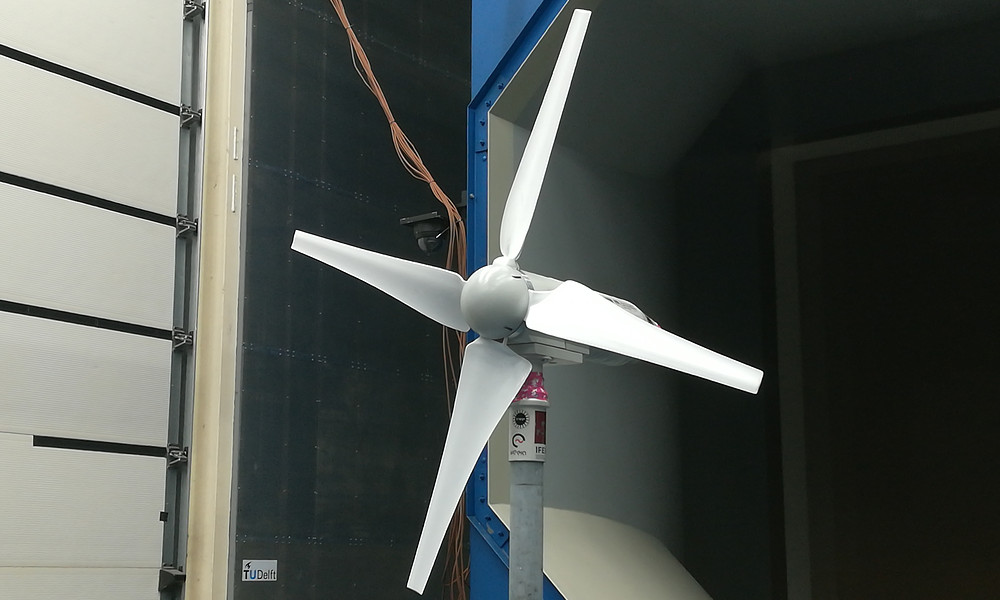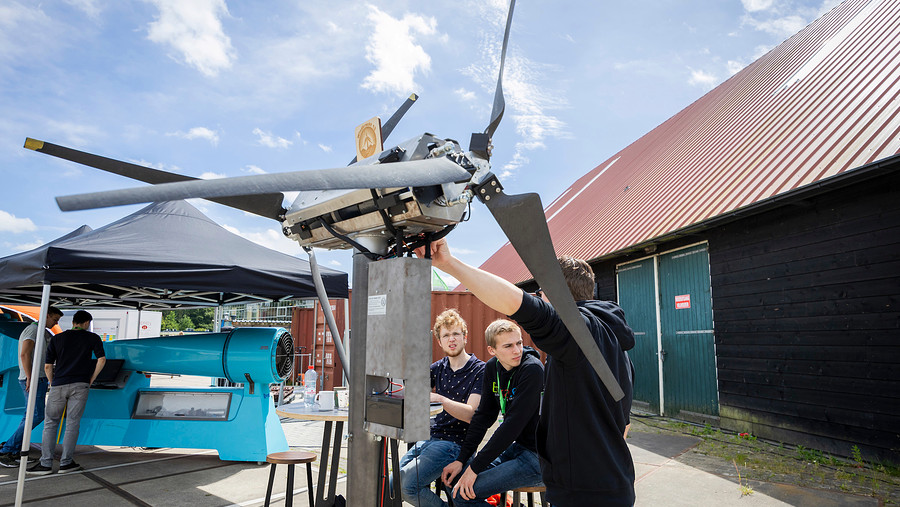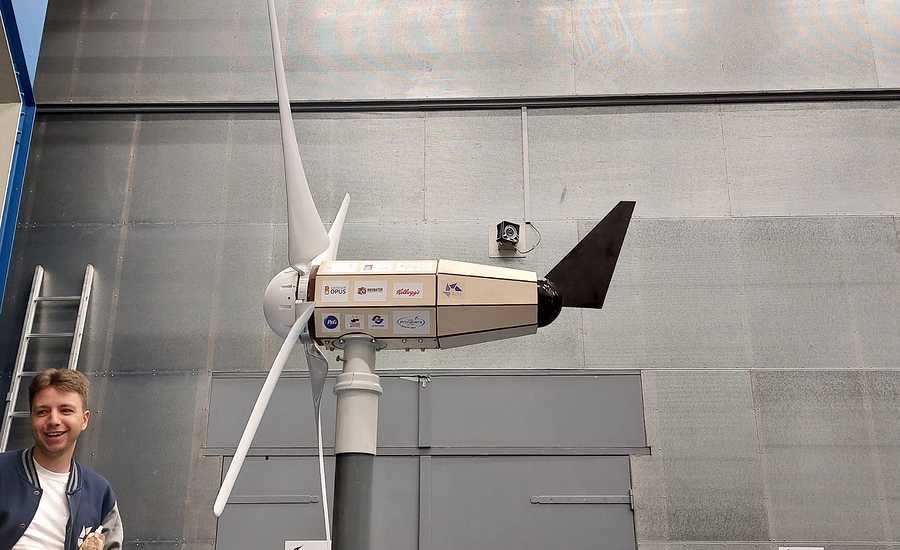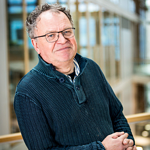
The International Small Wind Turbine Contest (ISWTC) is an annual contest in which University student teams from different countries can compete in designing and building a Small Wind Turbine. The contest was first organised by NHL University of Applied Sciences in 2013. Since 2018 the Hanze University of Applied Sciences (Hanze UAS) has been organising the contest.
The contest for most efficient and highest energy yield
The goal of the ISWTC is to build the most efficient wind turbine with the highest energy yield. The contest consists of two parts.
In the first part, the student teams write both a design and sustainability report. In the design report they describe their technical design choices, based on theoretical research, and outline the construction of their turbine. The sustainability report covers aspects of the turbine such that it is suitable for developing regions (i.e. a life cycle assessment, embeddedness, maintainability, materials choice).
The second part is the actual build part. The teams will realise their designs. In June/July a test week is organised in the Open Jet Facility at TU Delft where teams will test their small wind turbines. The turbines will first be inspected on electronics safety and mechanical safety systems, then the turbines will be tested in the wind tunnel. The power output of the turbines is measured. The goal is to get the best power production.
Symposium
The symposium and contest will be held at the Energy Barn in Groningen. Here they will present their turbine and results to each other and a general audience. A jury of wind energy experts (also present in Groningen) will assess the presentations. Together with the performance in the tunnel and the design/sustainability reports the jury will conclude the winners of the contest.
Dual rotor wind turbine Hanze Groningen

Background information ISWTC

Application form ISWTC
In order for the organisation to formalise the competition we kindly request teams who are interested in participating to fill in this application form.
Application formOnze mensen
For more information or questions, please click here..-

Niels Adema
Onderzoeker
- [email protected]
- Niels Adema
-
Zernikelaan 17, 9747 AA Groningen
-

Gerard Schepers
Lector Windenergie
- [email protected]
- Gerard Schepers
-
Zernikelaan 17, 9747 AA Groningen
-

Jolande Prins
Opleidingsondersteuner
-
Zernikelaan 17, 9747 AA Groningen
-
Feedback component
How satisfied are you with the information on this page?



